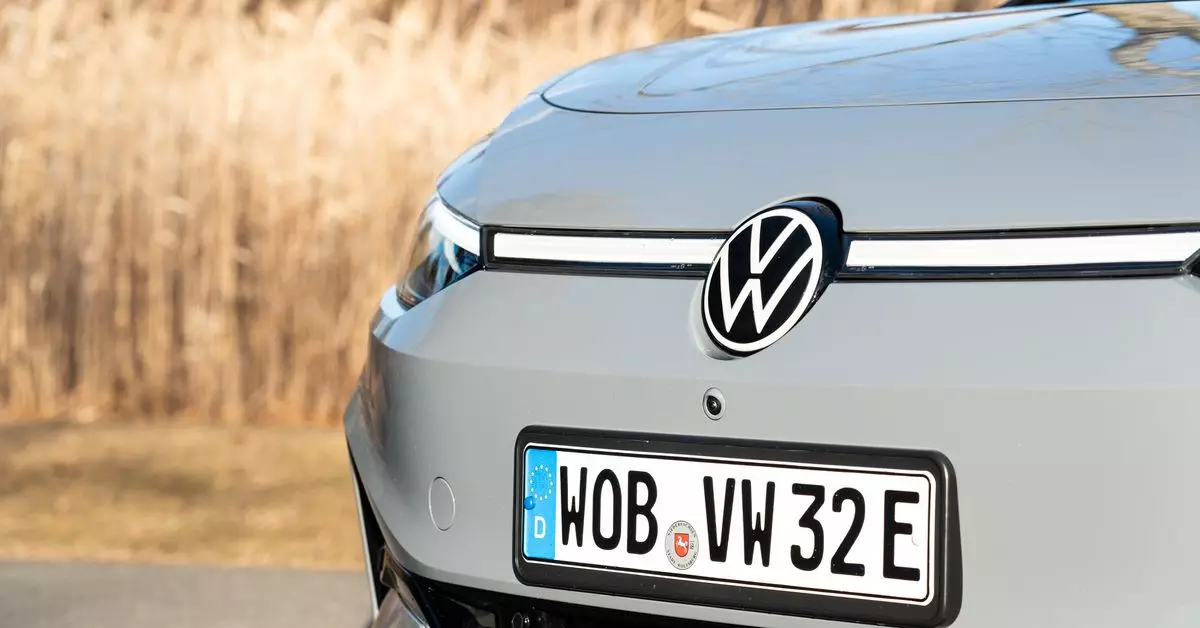In a significant cybersecurity incident, it was recently revealed that location data from approximately 800,000 electric vehicles manufactured by Volkswagen has been publicly accessible due to a critical data leak. This revelation, brought to light by the German news outlet Der Spiegel, raises troubling questions about the security measures in place within automotive software systems, especially as the industry increasingly transitions to electrification and connectivity. As electric vehicles (EVs) become more integrated with digital networks, this incident underscores the vulnerabilities inherent in this technology-driven landscape.
The details of the leak suggest a failure in the cybersecurity protocols employed by Volkswagen’s subsidiary, Cariad, which is responsible for the software powering these vehicles. An initial whistleblower brought the issue to the attention of both Der Spiegel and the European hacking organization, Chaos Computer Club, exposing the risks that extend to cars manufactured under the Volkswagen umbrella, including popular brands such as Audi, Seat, and Skoda. It appears that the compromised data was stored in Amazon’s cloud infrastructure, which should, under normal circumstances, provide robust security measures. However, this incident demonstrates that even established cloud services can fall prey to lapses in data protection when not managed with stringent protocols.
The data breach has alarming implications for driver privacy, as the exposed information could potentially be traced back to individual users. According to the report, the leaked data included precise locations of Volkswagen EVs, accurate to within just ten centimeters for some models, and personal information such as names, emails, and phone numbers. The accessibility of such detailed data invites an array of risks, including stalking, theft, and unauthorized tracking. This incident is not just a corporate concern; it reinforces the notion that personal data can be vulnerable even in the hands of reputable manufacturers, potentially jeopardizing user safety in unprecedented ways.
The ramifications of this incident extend beyond Volkswagen and its subsidiaries; they highlight a critical need for the entire automotive sector to reevaluate its approach to data security. As the automotive industry increasingly relies on advanced software and connectivity, stakeholders must prioritize cybersecurity to protect consumer data. This breach serves as a critical reminder for automotive manufacturers to invest in secure software development practices, conduct thorough vulnerability assessments, and ensure compliance with stringent data protection regulations.
In light of this incident, consumers may begin to scrutinize the data practices of car manufacturers more closely. This shift could encourage brands to adopt more transparent data handling processes and reinforce their commitment to customer privacy. As the market for EVs and smart vehicles continues to grow, businesses must learn from Volkswagen’s misstep to avoid similar breaches. Ultimately, the industry must cultivate trust by demonstrating accountability through proactive data security strategies, or risk losing the confidence of consumers in an increasingly digital world.
While the Volkswagen data leak is a wake-up call, it also presents an opportunity for the industry to embrace a more vigilant approach to protecting personal data, ensuring that the future of mobility is not only innovative but also secure.


Leave a Reply